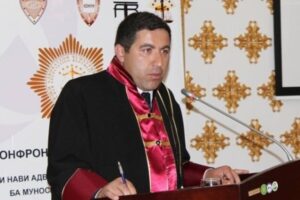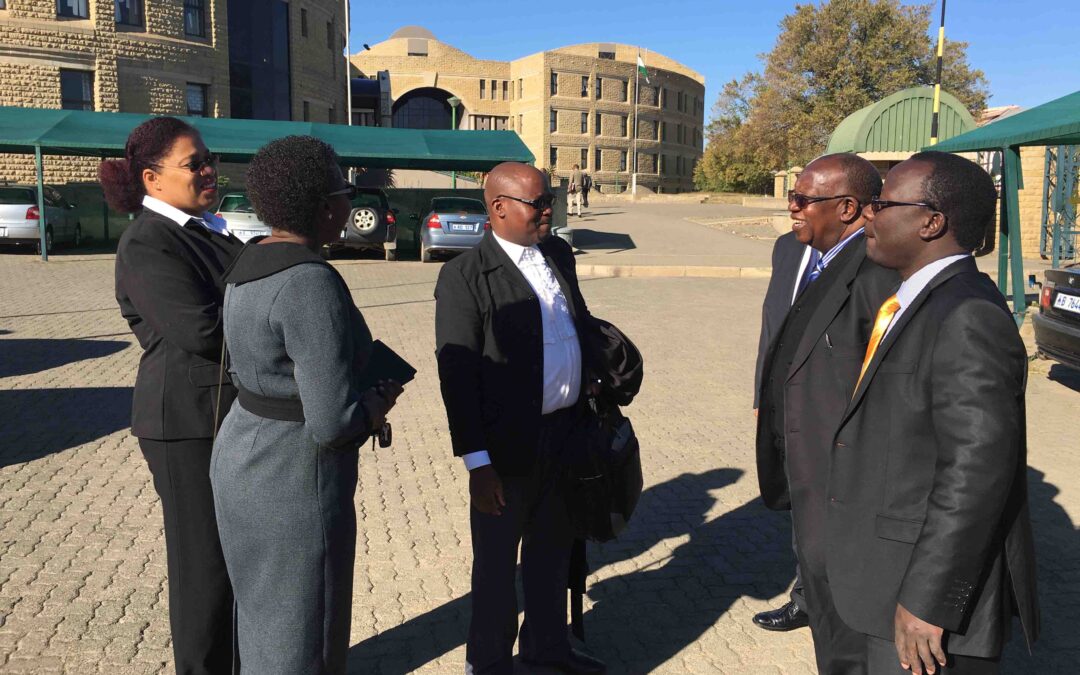
May 15, 2018 | News
The Africa Judges and Jurists Forum (AJJF) and the ICJ today called on the authorities in Lesotho to guarantee the independence of the judiciary and to immediately take all legal and administrative measures necessary to make the Court of Appeal function independently and impartially.
The call came as the AJJF and ICJ concluded a 5-day Fact Finding Mission to Lesotho (7-12 May 2018).
The mission emphasized the importance of the Lesotho authorities ensuring that the constitutional and legal framework on the selection, appointment and tenure of judges and the actual practices conform to the international obligations of Lesotho pursuant the international human rights treaties to which it is party, as well as other applicable international standards.
“During our mission we were troubled to discovered that the Court of Appeal has not sat in the past two of its scheduled sessions and with the current impasse we are concerned that it may not convene anytime soon,” said Retired Chief Justice Othman Chande of Tanzania who led the AJJF/ICJ mission.
“We also found that the Prime Minister had initiated a process that may result in the impeachment of the Chief Justice under controversial circumstances,” he added.
The AJJF and the ICJ have been concerned for a number of years about threats to judicial independence in Lesotho.
The ICJ carried out a fact finding mission in 2013 exposing and evaluating some of these concerns. The report of the mission contained specific recommendations.
The AJJF and the ICJ are concerned that most of the recommendations that were made to address structural issues to do with guaranteeing the independence of the judiciary at law and in practice have not been implemented or otherwise addressed.
The appointment of the Chief Justice and the President of Court of Appeal is made by the King on the singular advice of the Prime Minister.
Any impeachment of the Chief Justice and the President of the Court of Appeal is also initiated by the Prime Minister.
These arrangements do not comport with international standards and give rise to the perception that the appointment of judicial officials and any impeachment action against them will be politically motivated.
This has also lead to friction or strong perception of friction between the Executive and the Judiciary in a deeply polarized society.
The appointment process of the President of the Court of Appeal has been subject to prolonged political dispute and litigation that has resulted in a leadership vacuum at the appex court that has made it dysfunctional.
The result is that all litigants who expect justice from the Court of Appeal have years of waiting before they can get their matters resolved.
While the case challenging the appointment of an acting President of the Court of Appeal is presently set down for hearing at the High Court in the coming weeks, it is not clear that this adjucation will conclude the legal process and pave way for the appointment of the acting President of the Court of Appeal.
The appointment of ordinary judges of the High Court is done by the King on the advice of the Judicial Services Commission (JSC), which is chaired by the Chief Justice chairing a panel of only four people comprising the Chief Justice herself, Chairperson of the Public Service Commission, the Attorney General and one Judge.
All these officials are effectively appointed by the Prime Minister or closely work with the Chief Justice, resulting in an appointment process of judges of the High Court that lacks transparency and is perceived as open to cronyism.
“It is important that the legal profession and the judiciary speak strongly in defence of independence of the judiciary, but currently the legal profession is deeply divided, distrustful and polarized,” said Retired Chief Justice Sakala (Zambia).
“It is therefore important that a practice of regular bar-bench dialogue be initiated to reduce toxic relations that are being exploited to undermine judicial independence,” he added.
The broader reforms that were recommended by the SADC Commission of Inquiry to strengthen governance in Lesotho have not been wholly implemented.
The country needs broad reforms including in the judicial sector, but these reforms have been threatened or at least slowed down significantly by the instability in the successive coalition governments that make it impossible for the reforms to be carried out when the country is in a constant electoral mode.
The AJJF/ICJ mission hopes that the ongoing efforts to impeach the Chief Justice will fully respect her right to a fair hearing as stipulated in international obligations binding on Lesotho and that such efforts will strengthen rather than weaken the rule of law in an already fragile environment.
A report of the mission will be published and made publicly available.
Lesotho-End of Mission statement-News-2018-ENG (full story, in PDF)
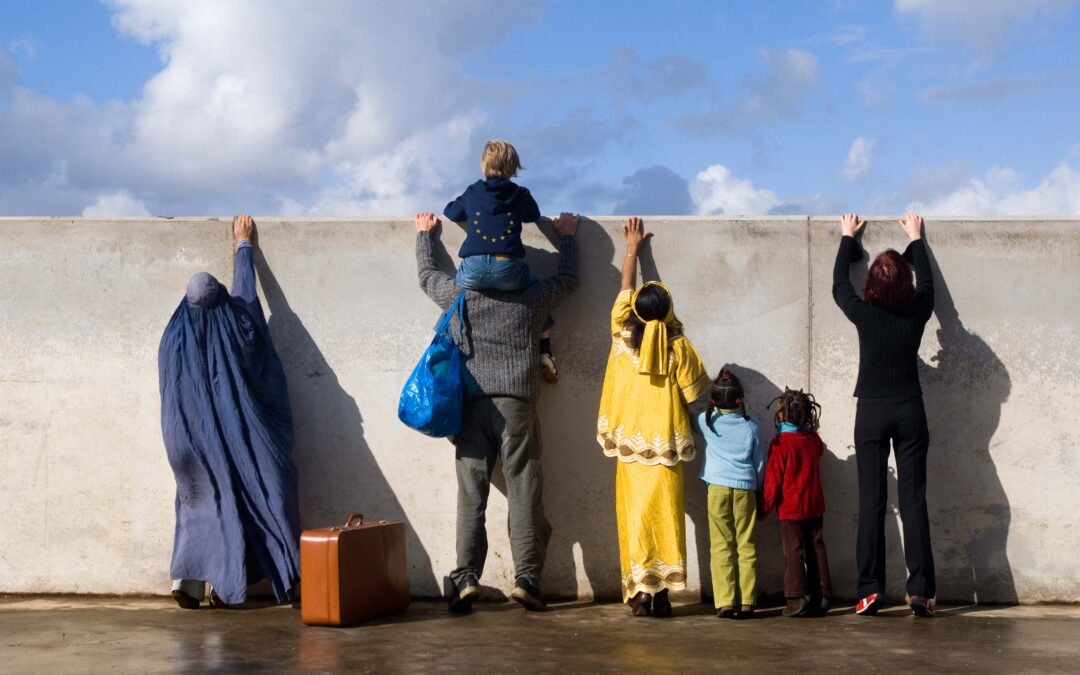
May 12, 2018 | Agendas, Events
Today begins in Istanbul (Turkey) a two-day seminar for lawyers and CSO practitioners representing and working with migrants, refugees and asylum-seekers.
This event is organized by ICJ, in cooperation with its partners Refugee Rights Turkey, the European Council on Refugees and Exiles (ECRE), Mülteci-Der (MD) and ICJ-EI, as part of the EU co-financed project Fostering Access to Rights for Migrants, Refugees and Asylum-Seekers in Turkey.
40 lawyers and civil society practitioners – representing different bar associations and relevant organisations from the all over Turkey – are taking part in the seminar on 12 and 13 May.
The seminar aims to update lawyers and CSOs on the international law mechanisms in the United Nations and the Council of Europe, deputed to the protection of the rights of refugees, migrants and asylum-seekers . It aims at an effective implementation of the Turkish legal framework on asylum and migration.
The training will use as a basis the draft training materials prepared by the ICJ and its partners (to be published an the end of 2019) and, among other sources, the ICJ Practitioners Guide no. 6: Migration and International Human Rights Law.
The project “Fostering Access to Rights for Migrants, Refugees and Asylum-Seekers in Turkey” is funded by the European Instrument for Democracy and Human Rights (EIDHR) of the European Union.
Turkey-Seminar-Istanbul-MigrationAsylum-Agenda-2018-eng (download the agenda)
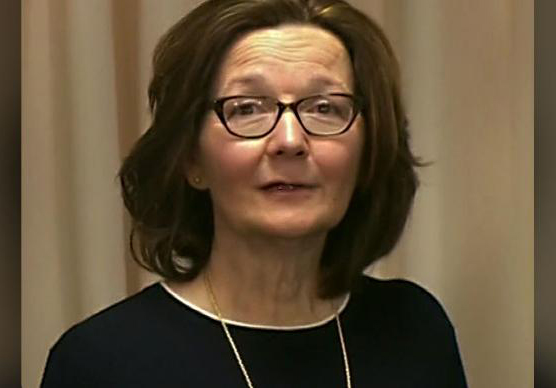
May 9, 2018 | News
The ICJ said today that Gina Haspel, nominated by Donald Trump to be Director of the CIA, should be subject to a full criminal investigation for her alleged involvement torture and other serious crimes, rather than elevated to serve as the country’s highest intelligence office.
The ICJ statement came as the United States Senate Intelligence was poised to beginning hearings on her confirmation to the position.
“If Gina Haspel becomes CIA Director, the United States will be sending a signal to the world that it has dropped the pretence of caring about even the most serious human rights violations,” said Sam Zarifi, ICJ Secretary General.
“It will show that torturing and disappearing people by US officials will not only be met with impunity, but will be no bar to career advancement.”
Following the terror attacks against the United States of 11 September 2001 until 2007, the CIA held at least 119 terror suspects or persons it suspected to have intelligence value in places of secret detention outside of US territory.
The black sites were situated in several countries, including Afghanistan, Lithuania, Poland Romania, and Thailand.
The detainees, who had no contact with the outside world, were placed beyond the protection of the law and subjected to torture and cruel, inhuman and degrading treatment.
The torture included near drowning (“waterboarding”), prolonged sleep deprivation, placement in painful stress positions for extended periods, forced rectal feedings, and slamming against walls.
Gina Hapel oversaw at least one “black site” detention centre in Thailand in 2002, while detainee Abd al-Rahim al Nashiri was being tortured there.
She is credibly alleged to have played a significant role in destroying video evidence of interrogations that were carried out under torture.
“The European Court of Human Rights has already condemned Poland for violating the rights of Abd al-Rahim al Nashiri, after he was transferred to secret CIA detention facility in Poland, yet nobody directly responsible CIA has ever been held accountable for these serious crimes,” said Sam Zarifi.
Contact
Ian Seiderman, ICJ Legal and Policy Director, t +41 22 979 3837 ; e: ian.seiderman(a)icj.org
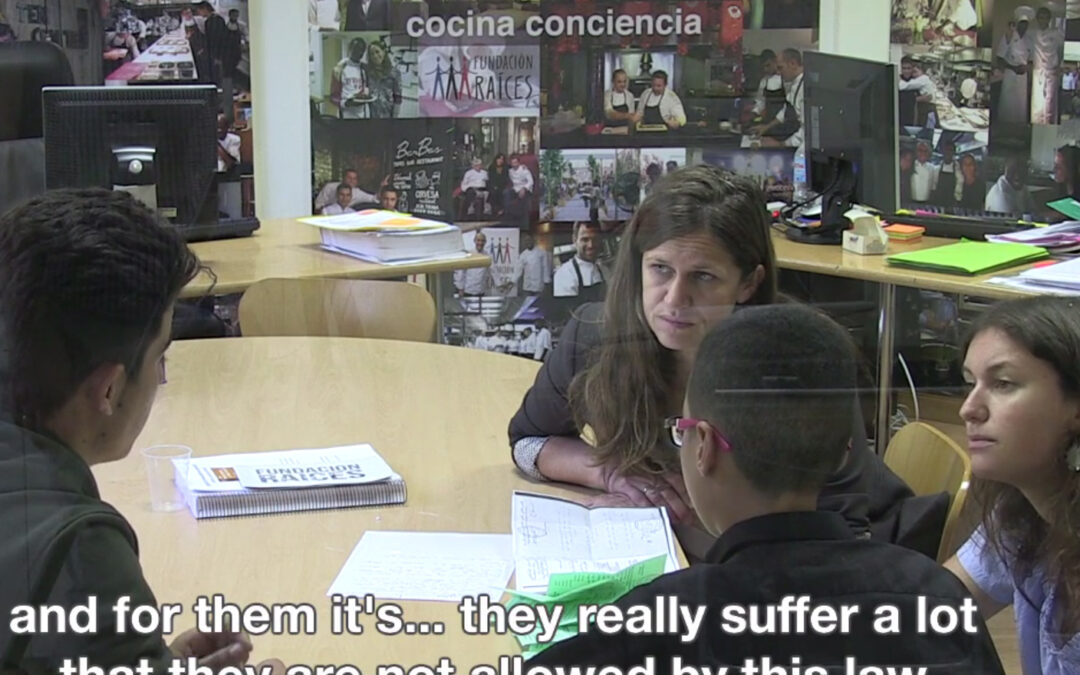
May 8, 2018 | Événements, Nouvelles
Entre 2016 et 2018, la CIJ – Institutions Européennes a travaillé avec des partenaires dans sept pays de l’Union Européenne (UE) sur l’accès à la justice pour les enfants migrants dans le cadre du projet FAIR (en français : favoriser l’accès au droit des enfants migrants).
Les enfants migrants au sein de l’UE font face à de multiples violations de leurs droits humains et ce quotidiennement.
Il souffrent notamment d’un manque d’accès à leurs familles, à l’information, à une assistance et protection juridique, à l’éducation et à un logement. Ils sont aussi victimes de détentions illégales.
Le but du projet était de renforcer l’accès à la justice pour les enfants migrants en créant une équipe d’avocats européens bien préparés pour les représenter au niveau national et international.
Durant le projet FAIR, la CIJ – Institutions Européennes a effectué les activités suivantes:
- Développé sept modules de formation sur l’accès à la justice pour les enfants migrants ;
- Formé 142 avocats de sept pays de l’UE: Espagne, Italie, Bulgarie, Malte, Grèce, Irlande et Allemagne ;
- Rassemblé 35 avocats et experts durant un séminaire sur le litige stratégique de cinq jours ;
- Créé un réseau international d’avocats ;
- Fourni un soutien au travail des avocats engagés pour les enfants migrants.
Le projet FAIR a été fondé conjointement par le Programme Droits, Égalité et Citoyenneté de l’UE et par l’OSIFE.
Voir la vidéo sur le projet FAIR
Voir la vidéo sur le séminaire consacré au litige stratégique
Le matériel de formation sera prochainement disponible en anglais, espagnol, grec, bulgare, italien et allemand.
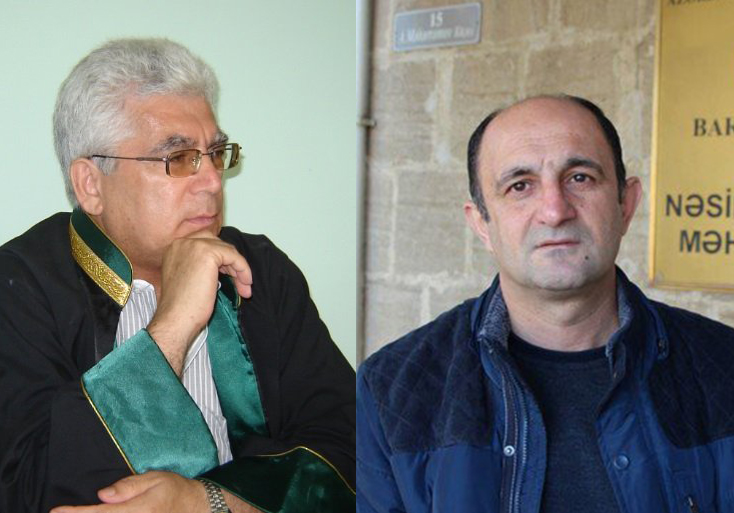
May 7, 2018 | News
The ICJ today denounced the decision of the Presidium of the Azerbaijan Bar Association, of 23 April 2018, to suspend the licences of two Azerbaijan human rights lawyers Asabali Mustafayev (photo, on the left) and Nemat Karimli (photo, on the right).
The ICJ called on the Presidium to reverse their decision and allow the lawyers to resume their practice.
It stressed that disciplinary proceedings pending against the lawyers should be immediately terminated.
The ICJ said that the decision of the Presidium was contrary to international standards on the role of lawyers including the right to freedom of expression as guaranteed under international law.
The ICJ understands that the proceedings against the two lawyers, initiated following a submission of the Deputy Prosecutor General, were related to the critical statements made by the lawyers in the media, regarding high profile criminal cases.
Nemat Karimli, had stated in media interviews that his client Afgan Mukhtarli, an opposition activist convicted on charges of smuggling, had been illegally and forcibly transferred from Georgia to Azerbaijan and that his life could be at risk if he was returned to Azerbaijan.
The lawyer also complained of excessive searches and being prevented from communicating in private while visiting his client in detention.
The disciplinary proceedings against Asabali Mustafayev relate to allegations he made on social media that the prosecution of politician Gozal Bayramli, on a charge of smuggling, was politically motivated.
Both lawyers were charged with spreading false statements and slanderous information about investigative authorities.
The submission of the Prosecutor to the Bar Association, on 25 October 2017, alleged that lawyers Nemat Karimli and Asabali Mustafayev in their interviews to the media had “politicized” the criminal cases of Bayramli and Mukhtarli, tried to mislead the public and slandered investigative authorities. According to the information provided by the lawyers, no evidence had been attached to this submission.
Instead, the Disciplinary Commission collected evidence to submit to the Presidium of the Bar Association, which subsequently suspended the licence of the lawyers.
Furthermore, the lawyers state that, contrary to what is required by the Law on Lawyers and Advocates Activities, they have not received a copy of the opinion of the Disciplinary Commission submitted to the Presidium of the Bar Association.
The ICJ is concerned that the suspension of the lawyers’ licences, for comments which drew attention to possible violations of human rights, may violate the lawyers’ right to freedom of expression.
These comments appear to be within the bounds of lawyers professional responsibility to protect their clients in every appropriate way (UN Basic Principles, principle 13(b)).
The right to freedom of expression is protected under international treaties to which Azerbaijan is a party, including by Article 19 of the International Covenant on Civil and Political Rights (ICCPR) and article 10 of the European Convention on Human Rights (ECHR).
The UN Basic Principles on the Role of Lawyers specify that lawyers “…have the right to take part in public discussion of matters concerning the law, the administration of justice and the promotion and protection of human rights …”.
The European Court of Human Rights has emphasized that lawyers are entitled to comment in public on the administration of justice, provided that their criticism does not overstep certain bounds, based on principles of dignity, honor, integrity, and respect for the fair administration of justice.
The ICJ emphasizes that protection of lawyers’ freedom of expression, in particular as regards issues of the rule of law and the administration of justice, is not only important to the individuals in question, it also serves as an important safeguard for the protection of human rights.
Where lawyers are subject to disciplinary sanctions for such statements, the role of lawyers in upholding the rule of law in the administration of justice is undermined.
The ICJ therefore calls on the Azerbaijan Bar Association to lift the disciplinary sanctions that would unjustifiably interfere with lawyers’ freedom of expression.
The ICJ also calls on the Azerbaijan Bar Association to ensure that the lawyers subject to disciplinary proceedings obtain a copy of the opinion to be able to prepare their arguments and defence.
Background
Asabali Mustafayev represented Gozal Bayramli who was found guilty and sentenced to three years in prison for smuggling €12,000 ($13,400) in cash. Mustafayev had expressed his opinion about the arrest of Gozal Bayramli in his social media profile, alleging that it was politically motivated. He stated that when he shared this opinion he was not yet engaged as Gozal Bayramli’s lawyer.
Nemat Karimli represented Afgan Mukhtarli, an opposition activist based in Tbilisi, who was convicted of smuggling € 10,000, illegally crossing the border and resisting police arrest and was sentenced to six years in prison. Karimli in an interview stated that Mukhtarli was taken to Azerbaijan illegally and called on the Georgian authorities not to hand him to Azerbaijan authorities since it might endanger Mukhtarli’s life.








